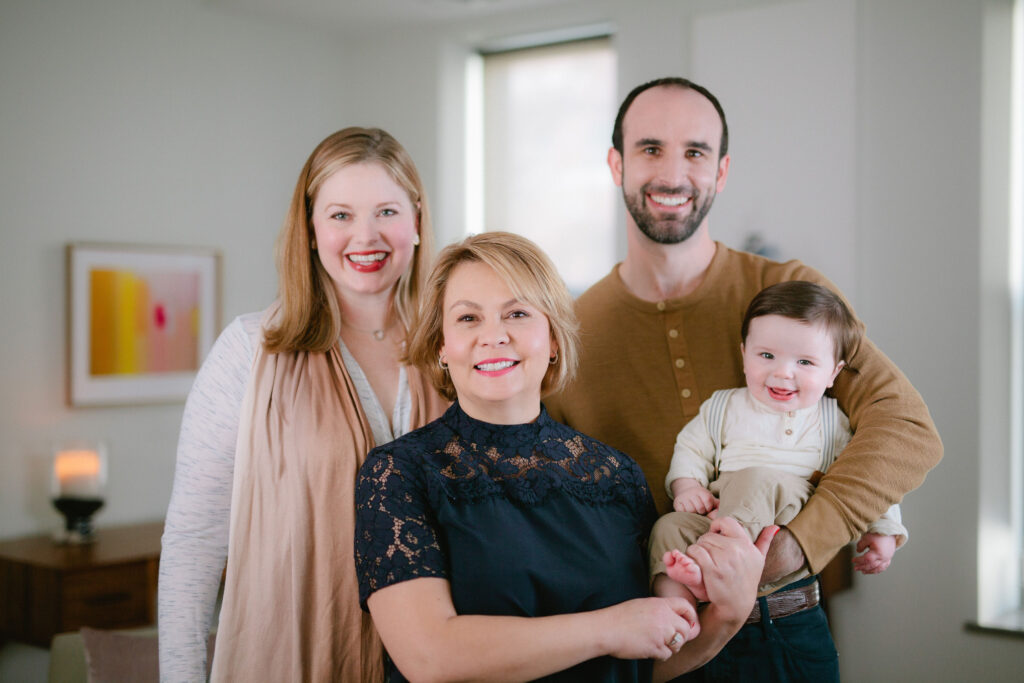As CEO of ConceiveAbilities – Nazca loves breaking barriers and working with people who are willing and able to challenge the status quo for excellence.
Founded as an egg donor service in her apartment nearly 25 years ago, Nazca has grown ConceiveAbilities into a multinational, full-service family creation agency by breaking down barrier after barrier. Driven by Nazca’s vision and instinct, the agency embodies her qualities of courageousness, vibrancy and tenacity. “We have deep relationships with IVF clinics, fertility experts, and scores of surrogates and families who built their families with surrogates. Despite all the challenges of 2020, we are happy to report that our doors have been open continuously and over 100 babies have been born to “our” families in this most unusual year.”
Nazca is a mom of two boys, Nazca is a sought-out thought leader both domestically and internationally for her perspective on this growing industry.
FWM: What Goes Into Making The Ideal Match?
ConceiveAbilities is the first agency worldwide to use a matching methodology called Matching Matters. The Matching Matters process focuses on the art and science of human connections, and results in 97% of intended parents being matched with the first surrogate presented, and shortens the average ConceiveAbilities engagement to between 13-18 months (as opposed to 18-24 months with other agencies).
FWM: How Many Matches Has ConceiveAbilities Made?
In the 25 years of building families, ConceiveAbilities continues to flourish in its ability to match thousands of parents globally.
FWM: How Has the Pandemic Changed the Surrogacy Journey?
The fundamentals of the journey haven’t changed at all, but what HAS changed are the more nuanced aspects of how we might manage to reach a milestone. And it’s a matter of keeping our finger on the pulse of clinic and family requirements and managing those expectations. For example, early on in the pandemic there were sizable travel implications and having a surrogate within a day’s drive to a clinic or parent was important. Now, the issue du jour is vaccinations. So, ultimately, these are matching issues far more so than fundamentals that have changed for the journey itself.
ConceiveAbilities recently hired research firm Accelerant Research to better understand surrogates. The firm surveyed 100 surrogates, more than 500 qualified surrogacy prospects and more than 1,000 women from the general population. Of the surrogates and qualified surrogacy prospects, Accelerant found:
- More than 60% reported a household income above $75,000.
- More than half volunteer regularly.
- Nearly half are registered blood and organ donors.
- Almost one-quarter of them foster pets.
- 68% see surrogacy as a way to support the LGBTQ community.
- More than three-quarters said they did so because they knew someone personally in need.
- Two-thirds said they had first-hand exposure to a relative or close friend’s struggle with infertility.
“We found that the single biggest motivation for surrogates is the simple desire to help,” Nazca Fontes, CEO Conceiveabilities shared. “Eighty-seven percent said they find joy in helping others; 74% reported they are motivated by a sense of empowerment as a surrogate.”

FWM: What are the requirements to be a surrogate/how can one apply?
To start, I completed a brief online survey to determine if I met basic requirements including:
· Age: 21 – 40
· Must already have given birth without complications
· Long term US resident
· Uncomplicated medical history
· Emotionally healthy
FWM: Has There Been An Increase In Clients Presenting As Gestational Carriers During The Pandemic?
I’m not sure I would say there is an increase in gestational carriers per se. We have been able to keep up with the demand of more and more families than ever before who are serious about having the family of their dreams, most especially due to the lessons of the pandemic. But are we better at reaching qualified candidates? Certainly. Do we hope more women answer the calling? Absolutely


